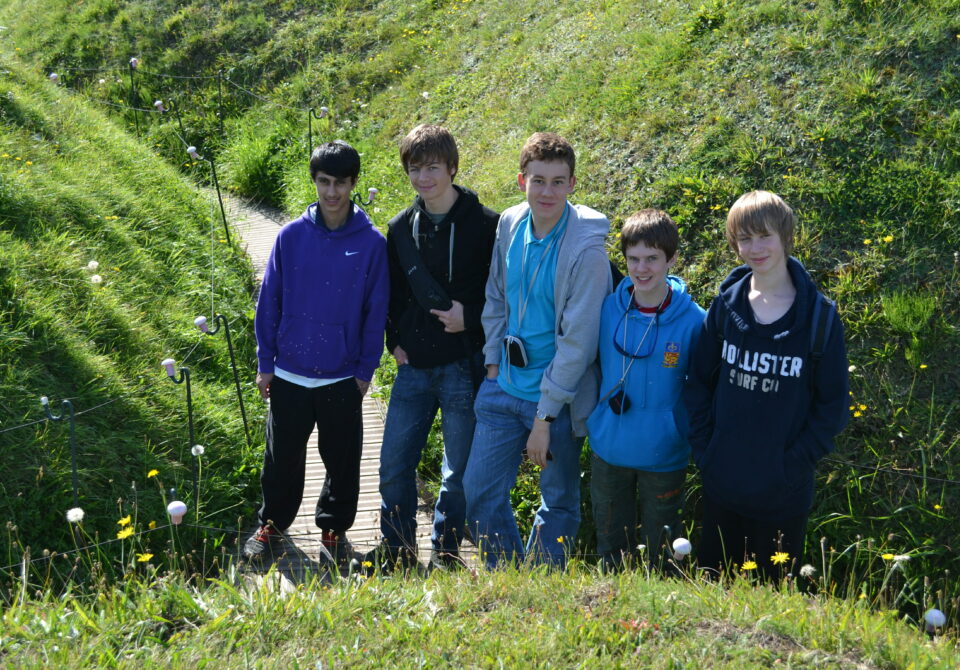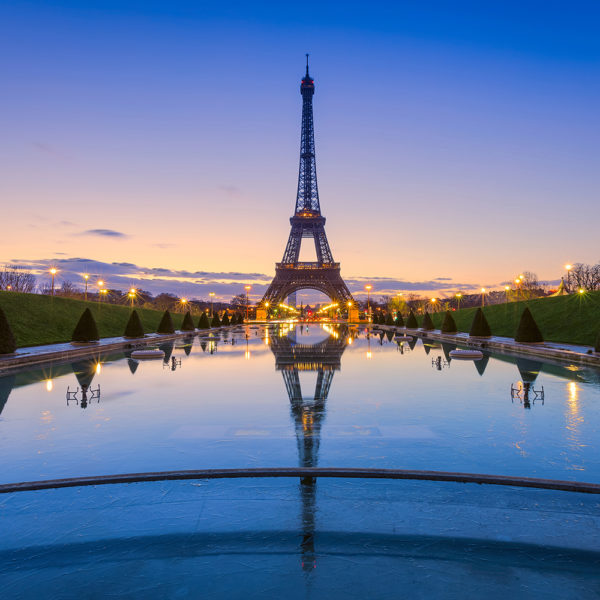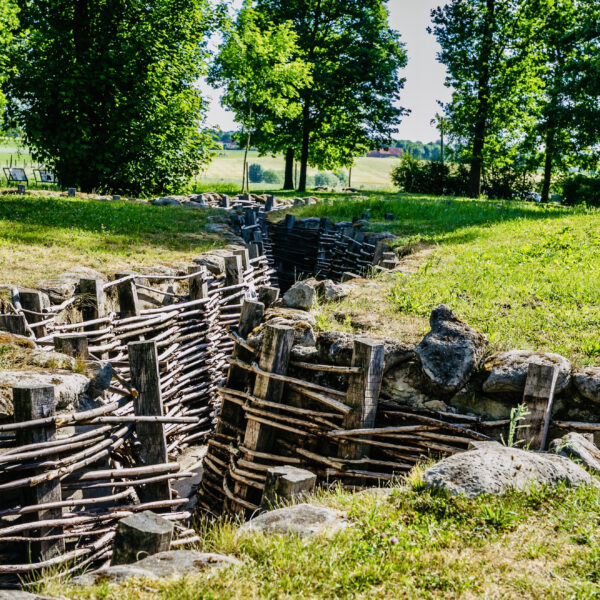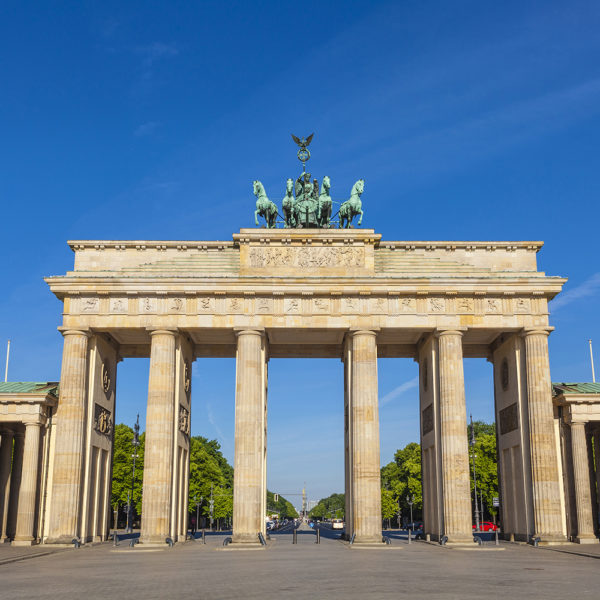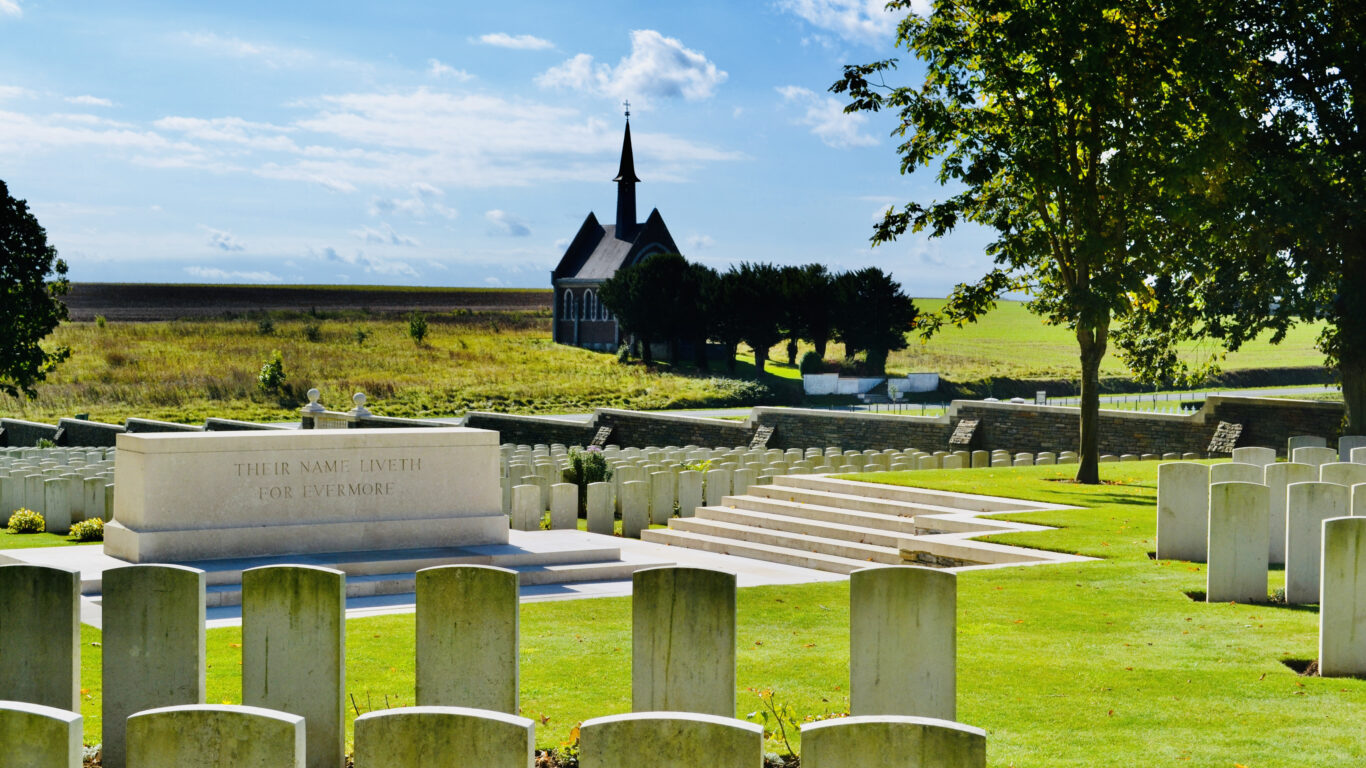
Both sides deployed new methods of fighting in WW1, including poison gas, flamethrowers and tanks. Medical treatments and innovations had to evolve to help treat injuries, some of which had never been seen before.
WW1 Medicine
- 4 days
- +1 GMT
- Belgium & France
- Coach
- Wellington Quarry
- Hooge Crater Museum
- Passchendaele Memorial Museum
- Vimy Ridge
- Last Post Ceremony
For the latest travel advice, including passport and visa information, visit the Foreign, Commonwealth & Development Office website
Sample itinerary
This sample itinerary is offered as a guideline. The trip focus, length and itinerary/activities can be tailored to meet your learning objectives.
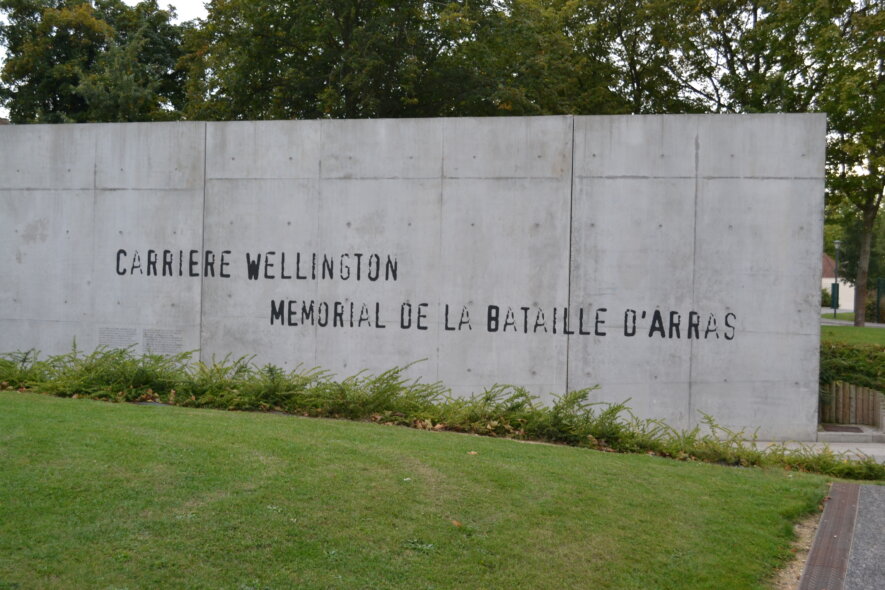
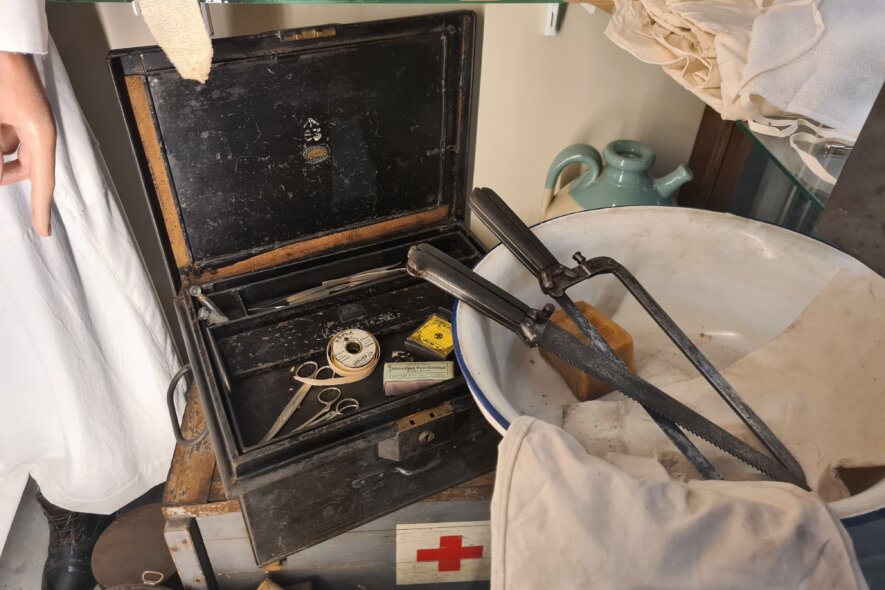
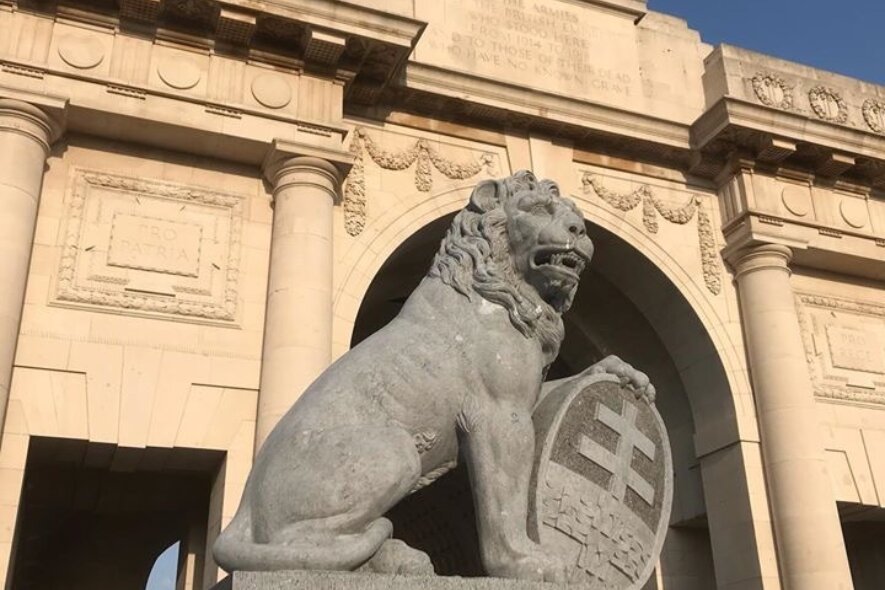
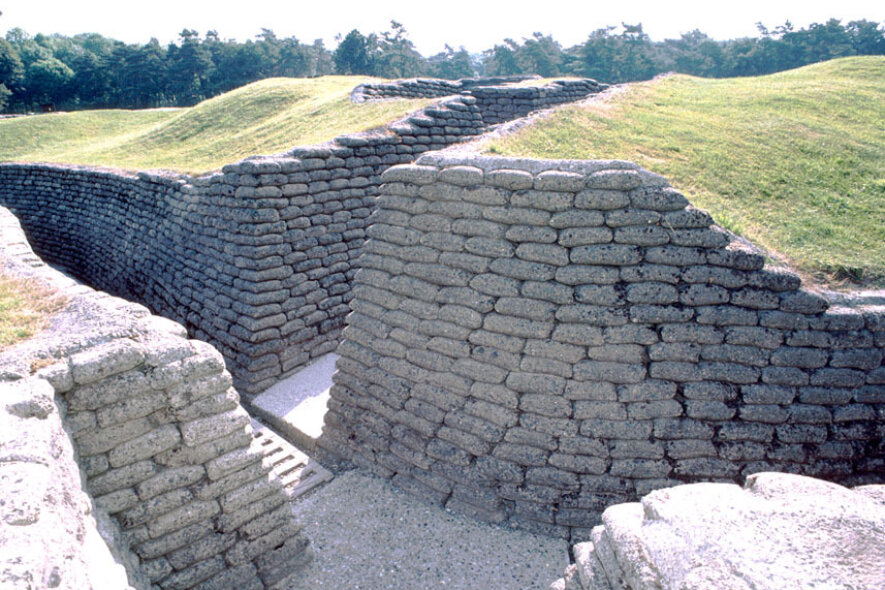
- Day
Day 1 - Wellington Quarry & Arras
An early start, as you make your way from school to France, collecting your Battlefield guide before crossing to Calais (Eurotunnel or ferry crossing available). En-route your guide will give a full introduction to the First World War.
Arriving in Arras, take a guided tour underneath the city streets to Wellington Quarry, which was created by the New Zealand tunnellers. These tunnels were hiding place and home to thousands of soldiers and included accommodation, a chapel and a hospital - complete with operating theatres. Just a few metres from the front line, soldiers launched themselves from here in a surprise attack on German positions on the 9th April 1917.
From here, pay your respects at two of the Memorials in this area dedicated to the servicemen with no known grave. Firstly, the Arras Memorial, which commemorates over 35,000 commonwealth soldiers and then the Royal Flying Services Memorial, which commemorates 1,000 airmen. Lt Walter Tull and Maj "Mick" Mannock VC are just some of the names that you will investigate and learn more about.
Then it’s time to head to your hostel for check in and dinner.
Highlights
- Wellington Quarry underground tour
- Investigating the Royal Flying Services Memorial
- Lt Walter Tull – his story
Day 2 - Ypres
A full day exploring the battlefields and memorials around Ypres in Belgium. First, head to Lijssenthoek, where many soldiers started their journey to the front and a place which brings home the reality of war. As well as a rear area and training camp it was also the site of the largest evacuation hospital in the Ypres Salient. Begin in the visitors’ centre, before heading out to the cemetery, where you will find 10,785 burials including French, British, German, two Americans and one woman – Nurse Nellie Spindler.
The story of mining in the First World War is brought to life at the next stop, Hill 60, a small area of elevated land in an otherwise flat landscape, still showing the battle scars from over a hundred years ago, with craters and bunkers.
At Hooge Crater Museum, the war comes to life, with full scale reconstructions of war scenes, an extensive medical display, including an original Ford T Ambulance and reconstructed German and British trenches. Learn how the trenches were built and gain a greater understanding of trench diseases and their treatment. At the rear of the museum, follow the front line in the footsteps of the soldiers with a walk to Railway Wood.
Stopping at Vancouver Corner, site of the first ever large-scale gas attack during the second Battle of Ypres, learn more about this type of warfare, under the watchful eye of The Brooding Soldier, the memorial dedicated to the men of Canadian First Division.
Langemark German Cemetery, is one of only four German cemeteries in the Flanders region. Compare the stark contrasts to our own cemeteries, including a mass grave containing 25,000 soldiers and hear some of the stories associated with this cemetery, including Adolf Hitler’s visit during the Second World War. The cemetery is the final resting place of many unexperienced young students so also has the name of “Studentenfriedhof” (Student’s Cemetery).
The final visit today is Tyne Cot CWGC Cemetery to learn more about the third battle of Ypres and the misery of the mud at the largest Commonwealth War Cemetery in the world.
Then it’s back to the hostel for dinner, followed by free time and chocolate shopping.
Highlights
- Hooge Crater Museum – walking through the reconstructed trenches
- Langemark German Cemetery – the story of the students
- Walking the Front Line
- Chocolate Shopping
Day 3 - Ypres
Another packed day. First travel to Poperinghe, site of the death cells and execution pole. Shell shock was not recognised as it is today and the soldiers affected did not receive the understanding and care that they needed. From here move on to Brandhoek New Military Cemetery and hear the stories of many of the Royal Army Medical Corps (RAMC) burials, including Captain Noel Chavasse VC, one of only three men to have won the Victoria Cross twice.
Then visit Essex Farm, an advanced dressing station and now a CWGC Cemetery and the location where Canadian doctor John McCrae wrote the famous poem “In Flanders Fields”. Amongst those buried here is Pte Strudwick, who died at only 15 years old and Pte Barratt VC.
Next make your way to the Passchendaele Memorial Museum, an interactive exhibition giving a good overview of the Battles of Ypres, with emphasis on the horrific Battle of Passchendaele in 1917. The Museum’s reconstructed dugouts and trenches bring the battlefield to life and allow students to experience first-hand the miserable conditions of underground warfare.
Heading back to Ypres, visit the Menin Gate, to hear the story of this “Memorial to the Missing” and the Last Post Association. Following dinner, attend and participate in the Last Post Ceremony, where a few selected students will lay a wreath on behalf of the school. Highlighting the theme of remembrance, it is a time for reflection, to show respect for others and recognise the sacrifices made by an entire generation on our behalf.
Highlights
- Passchendaele Memorial Museum - visual and hands on experience
- “In Flanders Fields”
- Participate in the Last Post Ceremony
Day 4 - The Somme and Vimy Ridge
This morning, head for the Somme. En-route your guide will tell you about the first day of the Battle of the Somme and show supporting videos. The first stop is Sheffield Memorial Park, where you will learn about the Pals Battalions and the New Model Army.
Then it is onto Newfoundland Park, which is on grounds over which the Newfoundland Regiment made their attack on the 1st July 1916, resulting in them being all but wiped out. The ground remains largely untouched and among the memorials and cemetery can also be found an excellent visitors’ centre.
The largest British Memorial in the world can be found at Thiepval, which is the next stop. Learn more about some of names found amongst over 72,000 inscribed on this Memorial.
Just a short drive on, stop at Lochnagar Crater, the result of a huge mine that was placed under the German lines and whose massive explosion signalled the start of the Battle of the Somme. Here, take time to discuss underground warfare and the reasons behind this type of warfare.
On the way back to Calais, make a final stop at Vimy Ridge, the Canadian National Memorial on the Western Front. The memorial, took eleven years to build and is visible for miles around, it makes for the perfect location to hear about the Battle of Vimy Ridge and to pay your final respects before departing for the coast and your journey home.
Highlights
- Lochnagar Crater – size and scale
- Standing under the main arch of Thiepval Memorial
- Magnificence of the Canadian National Memorial
What’s included
Full TCBC support from the moment you book until you return home
Itinerary flexibility to ensure the perfect tour for your students
Reliable coach and driver for duration of tour
You'll have all our necessary contact details to hand should the need arise
Knowledgeable guide to bring the Battlefield experience to life
Detailed itinerary, with all entrance fees included, no hidden costs
Return coach transportation for duration of trip including one or two drivers as needed
Experienced, knowledgeable guide to bring the Battlefield history to life
Choose either the ferry or Eurotunnel, whichever you prefer, the price is the same
3 nights accommodation in a well located hostel, multis for students
Breakfasts, packed lunches and dinners daily at hostel or local restaurant
Customised itinerary planned well in advance, with flexibility whilst on tour to rearrange things if needed
As shown on this itinerary. Please note that these may change based on your final itinerary.
There will be no hidden costs on tour, everything will be clearly explained before departure
24 hour emergency contact details of TCBC's office and your guide's mobile number
The normal free staff place ratio is 1:10 but this is flexible and we'll work to whichever ratio you require
Please check at school to ensure you are covered by an adequate travel insurance policy which we will need to see a copy of. We can help you source cover if you need
Battlefield guides
We can provide one of our trusted Battlefield guides to accompany you on your trip. Passionate and knowledgeable about the sites and conflicts that took place, they will only enhance your experience with their skilful story-telling and ability to bring the past back to life. For more information on our guides and their qualifications, please click here.
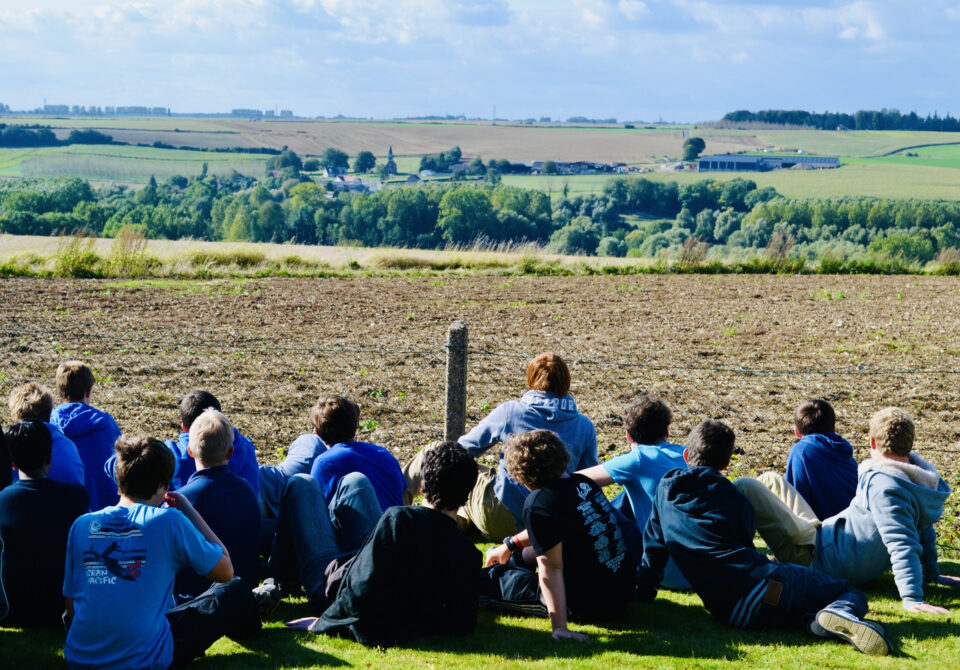
Accommodation
The accommodation we use in Belgium & France are used to working with school groups and meet our high standards
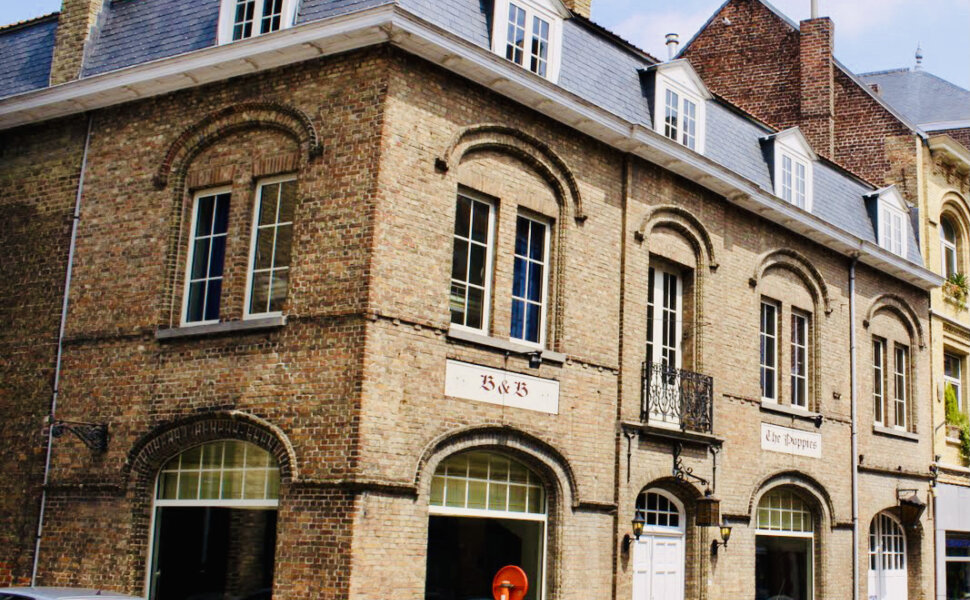
Poppies 1 & 2 Ypres
Located in the historic centre of Ypres, you are within a couple of minutes’ walk of the incredible town square, Menin Gate and chocolate shops. Steeped in history, the city of Ypres was reduced to ruins during the First World War. This building was rebuilt in 1925 and housed British soldiers during the Second World War.
Today you will find accommodation that is perfect for school groups. All rooms are equipped with an en-suite bathroom, there are separate areas for staff to relax in the evenings, with large areas for students that are equipped with computers, vending machines, cable television, and a ping pong and pool table – free Wi-Fi is available throughout.
Breakfasts are buffet style, with packed lunches available to take out with you for the day, dinner can either be taken at a local restaurant or in the hostel.
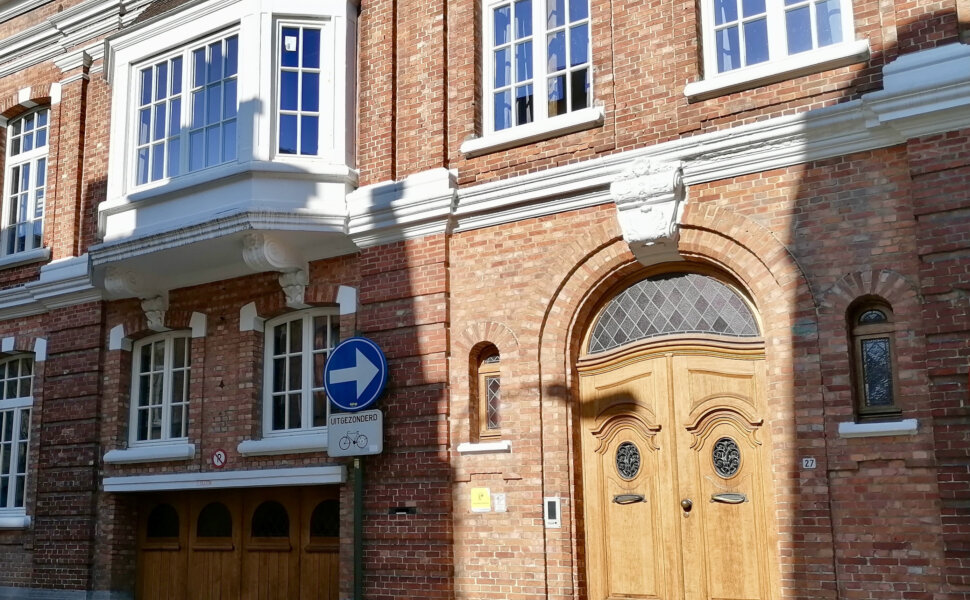
The Salient
In the heart of Ypres down a quiet road, you will find The Salient. Totally re-built after having been destroyed in the First World War, it’s the largest private property in the centre of Ypres. The ground floor has been recently renovated and features a large terrace and garden, so there is plenty of space for everyone.
Comfortable accommodation is available for up to 102 people, with all rooms offering en-suite bathrooms. The huge communal area features a vending machine with drinks and snacks, computers with internet access, a large games room and free Wi-Fi. Staff can relax in the separate lounge equipped with fridge and cable tv.
Breakfasts are buffet style, with packed lunches available to take out with you for the day, dinner can either be taken at a local restaurant or in the hostel.
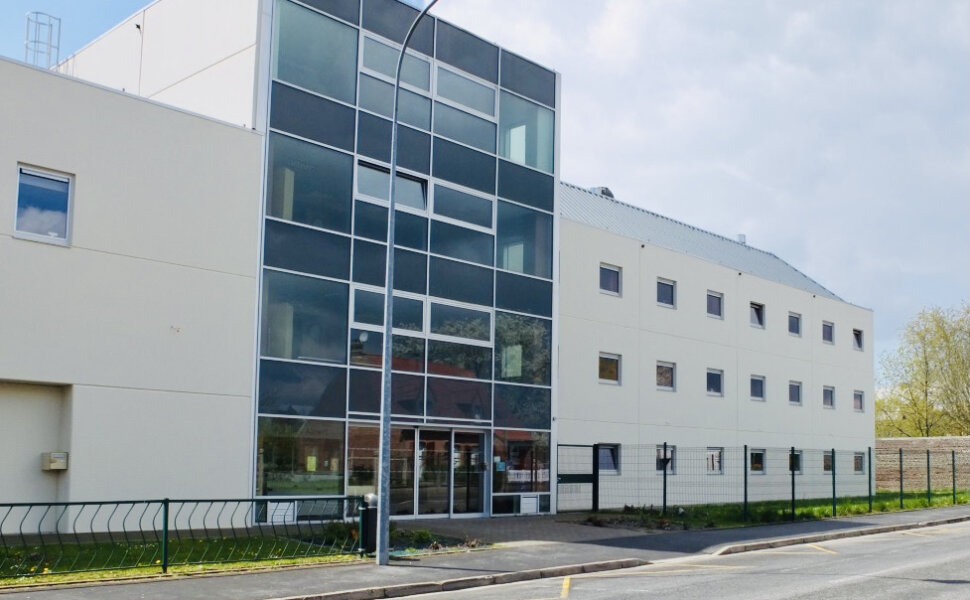
The Poppies Albert
Purpose built accommodation for schools is on offer at this hostel located in the historic centre of Albert, in the heart of the Somme.
Offering a total capacity of 186 beds and situated over three floors, you can take sole occupancy of an entire floor if your group size is at least 45 people.
Each floor offers bedrooms with en-suite bathrooms, a games room, computers with internet access, free Wi-Fi and a teachers lounge. Across the road is a football and basketball pitch which can be used by groups and the Somme 1916 Museum is just a short walk away.
Breakfasts are buffet style, with packed lunches available to take out with you for the day, dinner can either be taken at a local restaurant or in the hostel.
More tours like this
Reasons to travel with us
We honestly believe we are the best in what we do. We'd love the opportunity to show you.
Safety & reliability
The safety of all our travellers is our number 1 priority. We have a robust Safety Management System in place to ensure that our tours are run to the high levels you expect.
Experience & expertise
We have years of experience in planning school tours. Our expertise lies in our organisational skills, attention to detail and an understanding of what you need to make your trip a success.
TCBC local guides
Our guides are our greatest assets and consistently lauded. Highly experienced, knowledgeable and trustworthy, most are hand-picked and have worked with us for years.
Complete peace of mind
Our accreditations (ATOL, ABTA, STF, LOtC) provide you with the reliability, assurance and financial security expected from a specialist tour operator.
Customer
service
Our dedicated team is on hand to offer help and advice at every stage. We are positive you will be impressed with the high level of service you receive from us.
Flexibility & customisation
We customise every trip to suit your needs and offer maximum flexibility in planning your itinerary. We won’t rest until we get it right!
The personal touch
Getting to know our clients is very important to us. It’s very likely therefore that you’ll meet one or several of us at some point, either at school before departure or on the tour itself.
Total transparency
We include as much as possible in our quotes and are very transparent about what is and what is not included. There will be no hidden or surprise costs.
Pre-departure support
We understand how much work goes into planning a school trip. You will be dealing with the same people throughout the pre-departure process allowing us to respond quickly and accurately.
Repeat business
99.9% of teachers are so happy with our tours and our service that there is no need to travel with anyone else. We are confident you will feel the same way.
TCBC were so helpful from the start to the end of our tour. It was so well organised, allowing us all to focus on enjoying the trip and experiencing the history.
